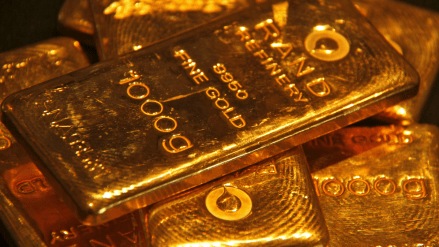The world’s biggest jewellery company, Pandora, recently announced use of 100% recycled silver and gold in its jewellery to reduce environmental footprint. In India, about 15.6% (117.1 tonne) of the total gold used (747.5 tonne) in 2023 was recycled, as per World Gold Council (WGC) data.
While recycling becomes imperative in the jewellery industry to meet demand, some environment-conscious brands are resolving to use only recycled metals. Indian brand Mia by Tanishq is one. Known for lightweight, fusion style gold jewellery for GenZ and millennials, the daily wear brand focuses on 100% use of recycled gold. “Many customers are keen to upgrade to latest designs, thus preferring to exchange their gold with us,” said Shyamala Ramanan, business head, Mia by Tanishq.
Globally, many other brands have switched to using recycled gold and include Tiffany & Co, Bulgari, Prada, Chopard. An estimate by McKinsey suggests that by 2025, 20-30% of global fine jewellery sales will be influenced by sustainability considerations, from environmental impact to ethical sourcing practices.
Gold refining and recycling in India is a Rs 440-billion industry making up 11% of the average local annual supply, driven by movements in gold price, future expectations and wider economic outlook, as per WGC.
The demand for gold in India outpaces its domestic mine supply, and this is fulfilled by imports as well as gold recycled locally.
However, in India, gold recycling is related to gold price movement. “When the price of gold increases, customers tend to postpone their gold recycling plans in anticipation of obtaining a more favourable valuation,” said MP Ahammed, chairman, Malabar Gold & Diamonds, who uses 40% recycled gold in making jewellery.
Surging gold prices urge many to exchange gold jewellery for new pieces instead of investing anew, with demand rising more during the wedding season. There is a notable pattern in the trade of old gold as customers anticipate a rise in gold prices and strategically choose to sell at that time.
“This approach signifies a growing consumer awareness. It also contributes to an evolving landscape within the jewellery industry,” said Joy Alukkas, chairman & MD, Joyalukkas Group, where 30-32% of their transactions involve the exchange of old gold and silver for new pieces. “We offer a convenient and transparent exchange programme to take care of the recycled gold and silver through which the jewellery finds a new life. It’s a win-win. Customers can embrace latest trends and help us to address the rising demand for contemporary jewellery,” said Alukkas, who has witnessed an upswing in the recycling of old jewellery.
Having said this, gold recycling faces challenges as well. As per WGC research, anticipated growth in the Indian economy could mean higher incomes and less distress selling, and while fashion conscious consumers tend to keep their gold jewellery for shorter periods of time and are more confident of gold’s value when they sell, refineries cannot always make use of this gold. There are even more challenges in gold exchange in India, like evolving consumer preferences toward alternative investments could reduce interest in gold exchanges, and emotional and cultural ties to gold jewellery or heirloom pieces lead individuals to retain their gold rather than exchange it.
Challenges faced by jewellers include purity assessment, market fluctuations and customer awareness. “We address these challenges with transparent exchange policy, customer education and incentives. We ensure 100% exchange value on HUID hallmarked 91.6 gold along with extra benefits,” said Alukkas.
Agreed Ahammed, “We need to put in extra effort to explain the importance of purity standardisation when customers come to our store with old gold without any purity certification.”
“Having said that, as 6-digit alphanumeric Hallmark Unique Identification Number (HUID) on gold jewellery has become mandatory, we are gradually moving towards an era of purity standardisation and such issues will cease to exist,” added Ahammed.
Piyush Gupta, director, PP Jewellers by Pawan Gupta, said they use 15-20% recycled metals in their jewellery manufacturing process. He said, “While we aim for sustainability, challenges arise with impure pieces during gold exchange, necessitating additional expenses on refining.”
